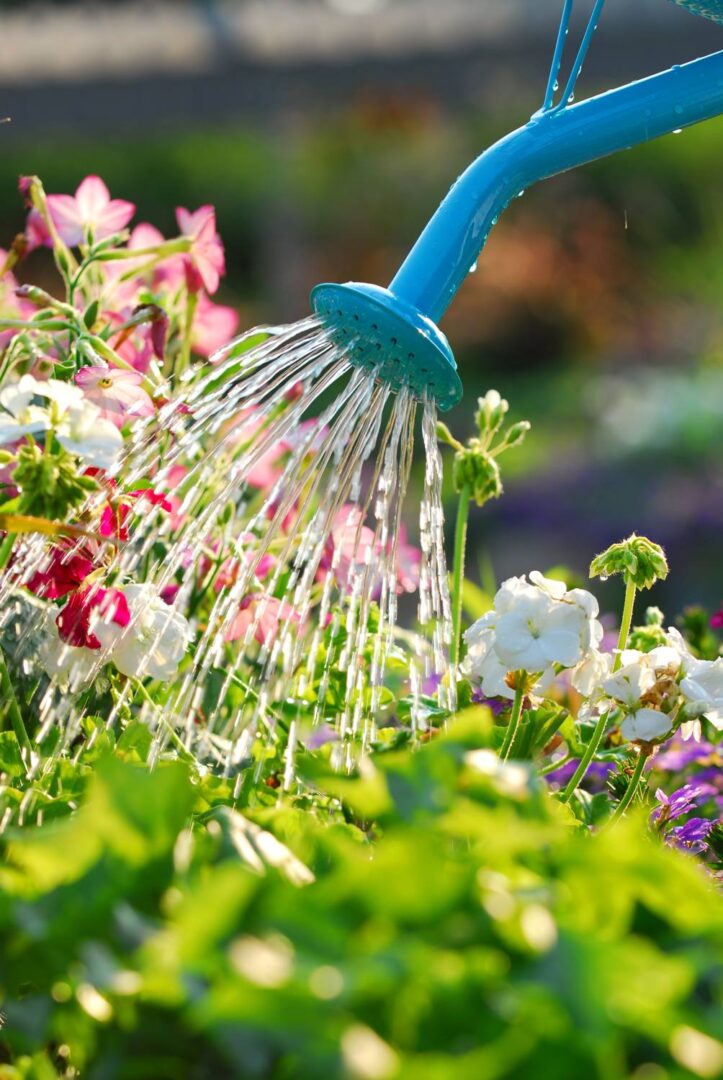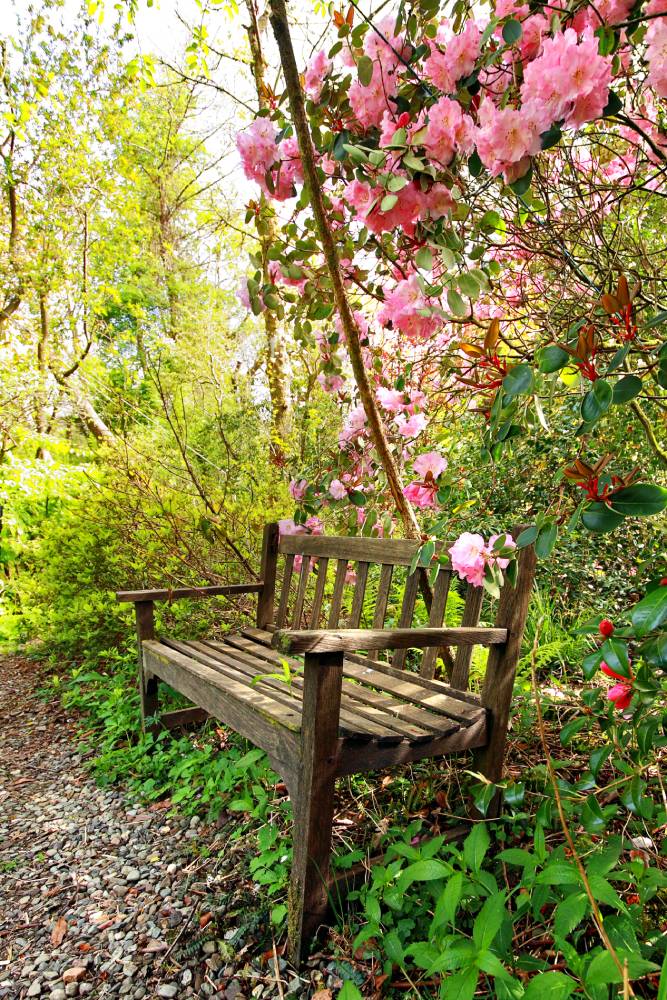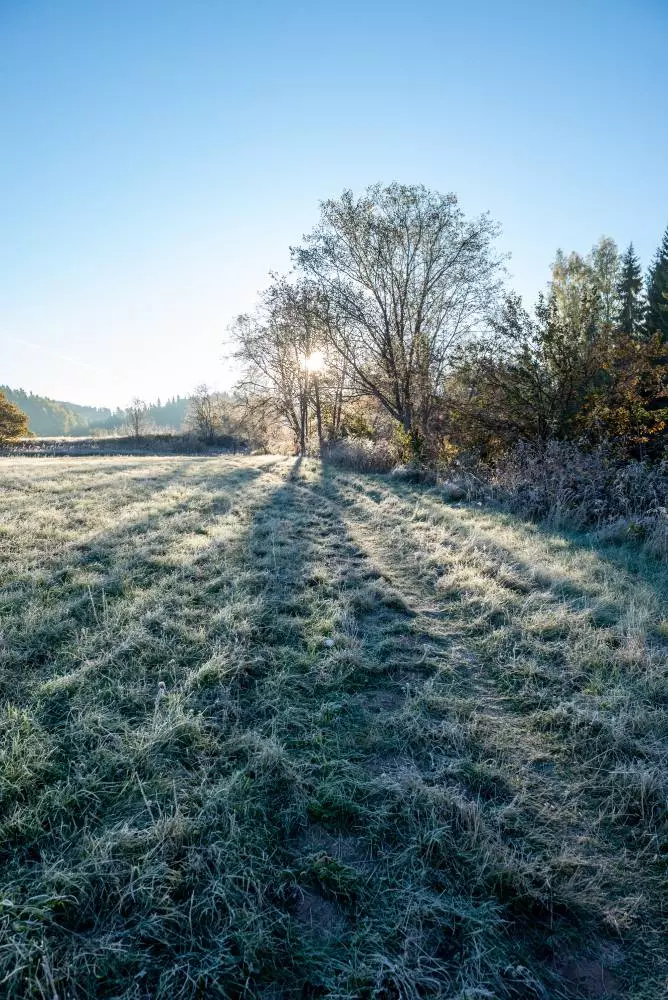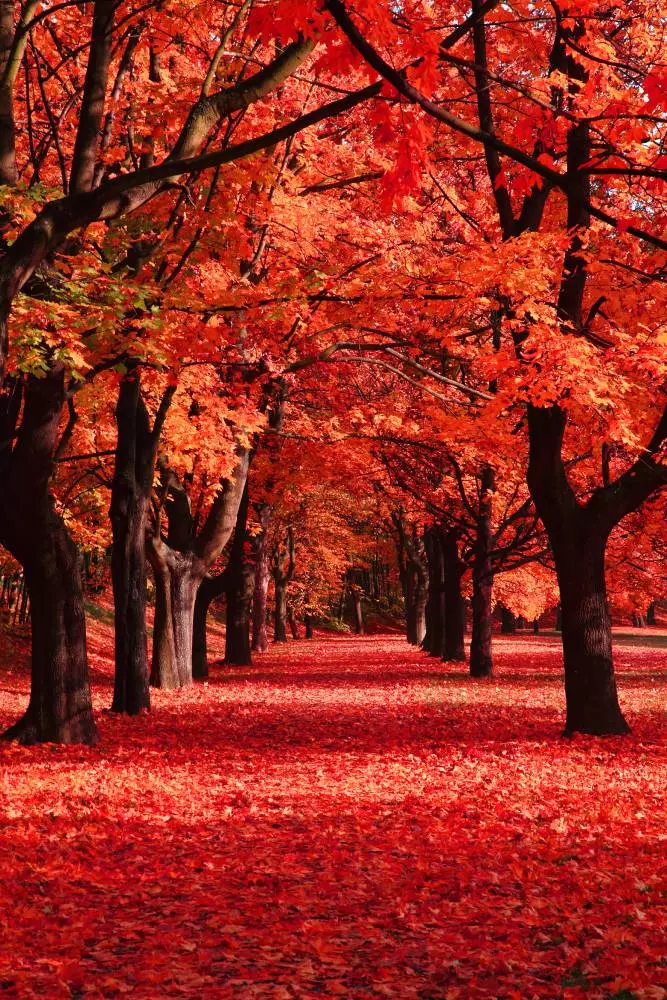Seasonal Tips
There Are No Gardening Mistakes. Only Experiments!
Helpful Tips & Tricks
Lawn and landscape maintenance follows the four distinct seasons: Spring, Summer, Fall, and Winter. Here are some helpful tips and advice on how to manage your yard, depending on what time of year it is!

Spring
Springtime makes us so excited; we wet our plants! This is an extremely busy time at our nursery, and we want to help make your yard and garden beautiful during the season.
- Clean out your garden - Remove all debris (leaves, leftover snow, etc.), and get rid of weeds. This is also a good time to sharpen your garden tools!
- Revitalize the soil - Soil dries out in the winter, so you will need to add moisture. Add organic material like compost or manure.
- Trim old plants - Plants that survive the winter will need to be pruned so they'll grow new in the spring. Blooming plants should be pruned right after they bloom to avoid cutting off future flowers. Summer plants should be pruned in early spring.
- Add mulch - In addition to fertilizers and organic materials, you should think about adding mulch to your flower beds and garden. One to three inches of mulch helps prevent weeds and diseases. It also keeps the moisture in the garden and maintains the temperature. The rule of thumb is to keep the mulch a few inches from the plant stems to prevent roots from rooting.
- Plant new flowers and shrubs - Once you have gotten your garden in good shape, turn your attention to new plants. You should lean towards planting more perennials rather than annuals because annuals have to be replaced every year. This means you are making an investment in plants that will die every year and require replacement. Perennials, on the other hand, last for two to three years and usually survive winter frosts.
Summer
Summer heat can come on strong, so here are some tips to keep your plants perky!
- Pruning - Perennials bloom for a 4 to 8 week period, but pruning dead flowers can promote the second set of blooms. Annuals bloom all season long, but pruning can help grow new blooms as well. If your annuals start to look droopy, cut them back 4 to 6 inches to encourage new growth.
- Watering - In the full summer sun, plants may need to be watered twice a day. Water plants during the early morning and early afternoon because wet foliage at night can lead to mold and mildew. It's important to give them time to dry. Water new shrubs and trees once a week.
- Fertilizing - Fertilize plants as often as every day but at least once a week. Be sure to use gloves when fertilizing or mulching and wash your hands afterward.
- Mulching - It's not too late to mulch! If you have less than 2 to 4 inches of mulch in your garden beds, consider mulching again to help conserve water and reduce weeds.
- Pest Control - Embrace good bugs like ladybugs, bees, praying mantises, and spiders while avoiding unwanted bugs like aphids or Japanese beetles. Birdhouses and birdbaths attract birds that control populations of unwanted insects.
Other useful summer tips include:
- Grass goes dormant without water in the heat, so it's best to leave it alone.
- If a tree's twig snaps when you bend it, it's a sign the branch and possibly the rest of the plant are dead. Take a small branch off and scrape it. If it has some green, it's likely alive.
- When annuals have browned, it's time to pull them out.
- If conifers lose their needles, they won't come back.
- Trim hedges after the first new growth.
- Mow regularly and as needed. Alternate your mowing pattern to avoid creating ruts.

Fall
Fall is the best season for planting trees and shrubs! Weather conditions are cool and allow plants to establish roots in the new location before spring rains and summer heat stimulate new top growth. A little bit of Fall planning and prepping can really give way to a wonderful spring season.
- Rake leaves as needed.
- Plant new cool - season annuals.
- Mulch!
- Clean up - Clean up rotten, fallen crops and leaves from fruit trees. Clean up plant debris and weeds.
- Plant spring - flowering bulbs.
- Overseed - Overseed new lawn or spots that need refreshing and use a fall grass fertilizer.
Winter
Winter is harsh on your yard, so you need to protect it! This is our slowest time of year, but there are still many things you can do during the season to prepare for the upcoming spring.
- Remove Weeds - Early Winter is the best time for weed removal.
- Cover the ground - Keep your ground well covered during these cold months to discourage annual weeds.
- Protect shrubs - Protect young trees, shrubs, and perennials from fluctuating and extreme temperatures. Use wraps and plant cover to help lessen the potential winter damage.
- Water early - Don't forget to water young trees and shrubs when you can! Once the ground freezes, you can take a break until it thaws out again.


